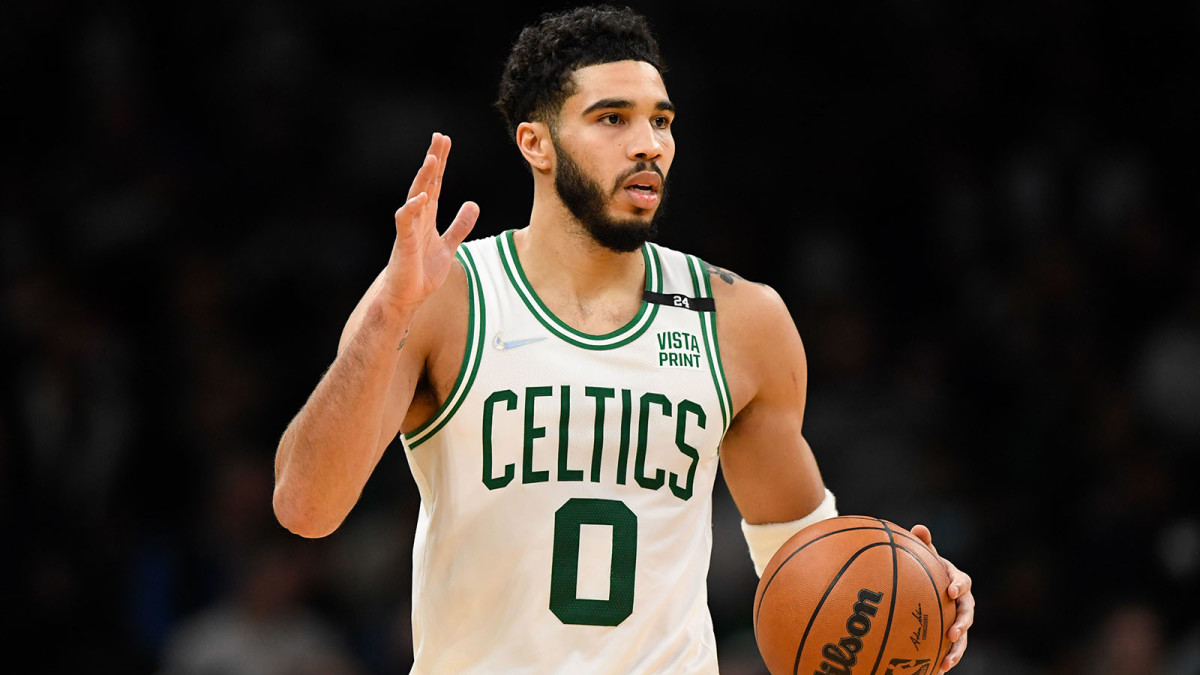How the Celtics Turned Their Season Around

BOSTON — Mea culpa, Celtics.
I was wrong.
Really wrong.
When the NBA season resumes Thursday, Boston will take the floor in Brooklyn 4½ games out of the top spot in the Eastern Conference. This is, of course, not to say the Celtics are poised to make a run at the No. 1 seed—Boston is just six games ahead of 11th place Washington—but evidence that, with 22 games to go, this Celtics team is pretty good.
Now who saw that coming?
Not me. In December, I was ready to declare this Celtics season a wrap. Maybe it was after an 88-point effort in San Antonio. Or a 1–4 road trip headlined by losses to the Lakers and zombie versions of the Clippers and Suns. Definitely after a loss to the Karl-Anthony Towns–less, Anthony Edwards–less, D’Angelo Russell–less Timberwolves.
Getting cooked by a fresh-off-the-street Greg Monroe was the last straw.
But something happened on Boston's road to the lottery. They started winning. Since Jan. 1, the Celtics are 17–7. They won nine of the last 10 going into the All-Star break. They have won 11 of the last 13 overall. They have the NBA’s best defense since the first of the year. The best NET rating, too. The Celtics’ preferred starting five—Marcus Smart, Jaylen Brown, Jayson Tatum, Al Horford and Robert Williams III—have a defensive rating of 88.8, tops among five-man units with at least 150 minutes together. Said Brad Stevens recently, “I've had a lot of good teams here defensively. But this group has a chance to be unique.”
I was wrong about Stevens. It’s no secret—I’m a fan of Stevens’s coaching. I was less enthusiastic about his ascension to the front office. He had no experience. Sam Presti, Boston-area born, could have been available. Promoting Stevens to replace Danny Ainge felt more like the easiest decision than the right one.
I didn’t like the decision to include a first-round pick to get off Kemba Walker’s contract. Whoops. Horford, acquired in the Walker deal, has been a valuable role player. Walker was bought out by the Thunder and, months after signing a deal with the Knicks, has been shut down by the Knicks. Yes, Alperen Sengün, taken with the pick Boston shipped to Oklahoma City, looks like a player. But there’s no guarantee the Celtics would have drafted him.
I thought Stevens whiffed on not re-signing Evan Fournier. Wrong. I thought the offseason was the right time to deal Smart. I didn’t see the wisdom in acquiring Josh Richardson after Richardson stumbled through one season in Dallas. Stevens slid Richardson into a trade exception last summer and then turned Richardson—plus another first-round pick—into Derrick White.
I was wrong about Ime Udoka. Well not wrong, exactly. Like most, I loved the hire initially. Udoka earned the opportunity. He was an ex-player. He was a longtime assistant. He had been schooled by Gregg Popovich, first in San Antonio and then during a stint with USA Basketball—the same USA Basketball teams that Tatum, Brown and Smart played on.
When the season started, though, I had questions. The defense looked disjointed. The offense looked out of sync. Some nights, too many nights, the effort wasn’t there. There was a players-only meeting two weeks into the season. Whereas Stevens, like most coaches, was reluctant to criticize his players, Udoka gave them a public flogging. Popovich, with his decades of experience and five championship rings, could get away with that. Udoka, who had never been a head coach at any level, could not.
Uh, about that. The Celtics have adapted to Udoka’s coaching style. They have embraced his defensive principles. “Defensively,” says Udoka, “we have been really good.” Coming into the season, Udoka emphasized a need for better ball movement. Since Jan. 1—there’s that date again—the Celtics rank in the top five in per game passes. During the recent nine-game winning streak they averaged 27 assists per game. The slow starts that plagued Boston early in the season have vanished. Depending on how the Celtics finish, Udoka, on the public hot seat in December, is a legitimate candidate for Coach of the Year.
“Our starts have been better, night and day, than earlier in the year,” says Udoka. “Offensively [we’re] continuing to play with pace, passing the ball. Simple things like passes per game, assist percentage, we have increased in all of those areas. … The passes in general have gone up. Less isolation and more team play has been beneficial for us.”

So how good are the Celtics? FiveThirtyEight gives the Celtics the best odds (21%) to win a championship. ESPN’s Basketball Power Index (BPI) ranks Boston’s chances just behind the Suns. I’m not ready to go that far. The offense is still unpredictable. Statistically, the Celtics’ bench is one of the NBA’s worst. And the team is still prone to the occasional clunker, like the loss to the cellar-dwelling Pistons before the All-Star break.
Watch NBA games online all season long with fuboTV: Start with a 7-day free trial!
But the Celtics are dangerous. Tatum is an elite scorer. Brown has rebounded from an uneven start. Williams is one of the NBA’s best shot blockers. And the Celtics’ defense, as versatile as any in the NBA, can carry them to wins. Boston has held opponents under 90 points nine times, an NBA best. They have held four opponents under 80. They are 25–5 when holding opponents under 105 points and 10–0 when limiting them to 90 or fewer.
The Celtics, if nothing else, are a contender. Not long ago no one would have believed that.
More NBA Coverage:
• Superstar Empowerment Is Wreaking Havoc in the NBA
• LeBron’s Future With the Lakers
• The NBA’s One-Minute Club
Sports Illustrated may receive compensation for some links to products and services on this website.
